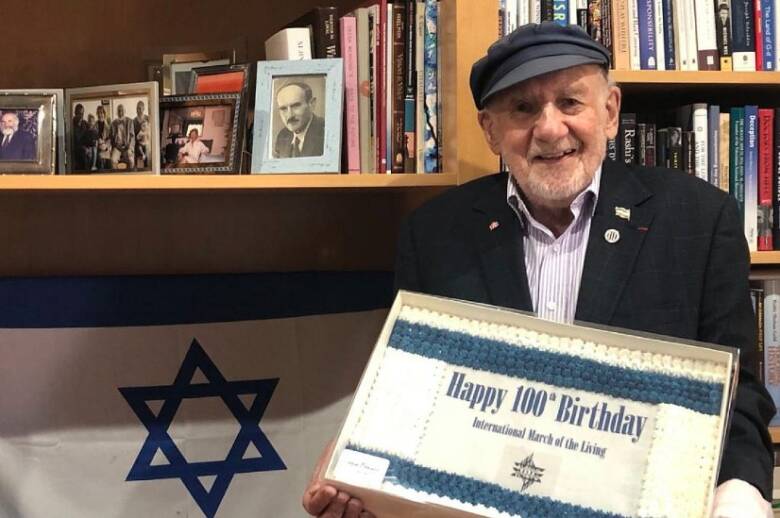Sixties Fan
Diamond Member
- Mar 6, 2017
- 58,616
- 11,119
- 2,140
- Thread starter
- #981
Kindertransport survivor Walter Bingham, recognized by the Guinness World Records as the oldest living working journalist, celebrated his 100th birthday in Jerusalem on Thursday.
Born Wolfgang Billig in 1924 in Karlsruhe, Germany, Bingham escaped Germany after Kristallnacht in 1939 by way of the Kindertransport, which sent nearly 10,000 unaccompanied children, most of them Jews, from Germany, Austria, Czechoslovakia, Poland, and the Free City of Danzig to Great Britain.
Bingham served in the British Army, earning honors for rescuing soldiers in the Normandy Landings. He later worked as a translator, including interrogating former Geman Foreign Minister Joachim von Ribbentrop.
(full article online)

 unitedwithisrael.org
unitedwithisrael.org
Born Wolfgang Billig in 1924 in Karlsruhe, Germany, Bingham escaped Germany after Kristallnacht in 1939 by way of the Kindertransport, which sent nearly 10,000 unaccompanied children, most of them Jews, from Germany, Austria, Czechoslovakia, Poland, and the Free City of Danzig to Great Britain.
Bingham served in the British Army, earning honors for rescuing soldiers in the Normandy Landings. He later worked as a translator, including interrogating former Geman Foreign Minister Joachim von Ribbentrop.
(full article online)

WWII Survivor, Veteran, Journalist Celebrates 100th Birthday | United with Israel
Walter Bingham served in the British Army and as a translator for Nazi interrogators.




